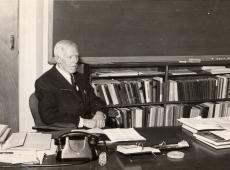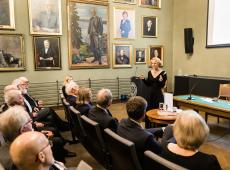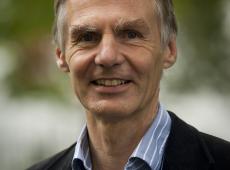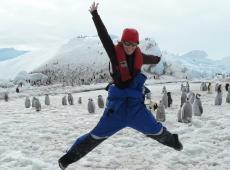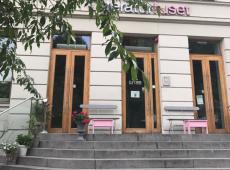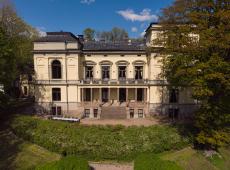Nyheter
Opprettet nyhet
Nyhetsarkiv
Odd Hassel fikk Nobelprisen i kjemi for sitt banebrytende arbeid med å løse sykloheksan-mysteriet. I dag er det få som kjenner til hva hans arbeid har betydd for vitenskapen. Det kan nesten se ut som at Odd Hassels navn er glemt.
(Foto av Hassel: ukjent fotograf MUV/UiO.)
Se bilder og opptak fra Nansen Minneforelesning. Foredraget "Fra kaldt til varmt - Norsk oseanografisk forskning i Weddellhavet, Antarktis" ble holdt av Elin Darelius.
Russlands okkupering av Krim-halvøya, Tyrkias invasjon av Syria, økende nasjonalisme og populisme. Er alt dette symptomer på at folkeretten er i ferd med å utvannes, eller er det bare snakk om «voksesmerter»? Professor Geir Ulfstein er i tvil.
The Biannual Social Sciences and Humanities Symposium: War and Peace
The goal of this symposium is to shed light on a range of issues relating to war and peace, especially in relation to understanding the current situation in Ukraine and how this affects the world at large. The symposium will discuss issues such as the following: how and why wars have emerged; how they have affected people in countries at war; how various countries and people have experienced war differently; how war has changed the relationship between countries and contributed to reconfiguring the world order and international legal systems, economic and material consequences of war (ranging from food to energy); and lastly, how wars are captured in literature and how literature affects our conceptualization of war and peace.
This symposium will gather scholars who will offer their insights into the newest research relating to war and peace in Norway as well as internationally. It will showcase what the broad range of disciplines within the social sciences and humanities can tell us about these issues.
The Academy's committee on Climate, Environment and Resources invites to a meeting on the ocean and its role in the Earth's ecosystem in accordance with the following High Commission meeting on the oceans 23 - 24 October.
Verdens viktigste utfordringer, som klimaendringer, tap av artsmangfold og migrasjon er svært komplekse.
Samtidig er forskningen på disse feltene preget av usikkerhet og debatt.
Hvordan kan politikere ta i bruk best tilgjengelig kunnskap?
Hvordan kan vi skape gode veier for vitenbasert rådgivning?
During decades of international climate policy negotiations, aiming to limit demand for fossil fuels, the stock of carbon dioxide in the atmosphere has increased considerably, and even the flow of emissions to the atmosphere continues to grow.
To reach the Paris Agreement’s goal of keeping global warming well below 2°C, substantial parts of the world’s fossil fuels simply cannot be combusted and must be left in the ground. Recent work thus suggests redirecting climate policies toward fossil fuel producers directly by capping the flows of extraction and restricting the stocks of resources available for exploration. Could this be an effective measure to reduce carbon emissions?
Åpent møte i regi av Det Norske Videnskaps-Akademis forskningetiske utvalg
